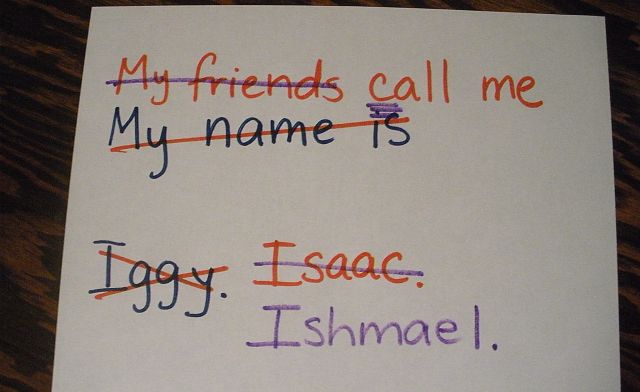If you've ever taken a class on writing or read a reference book regarding the craft, you've learned that opening lines are at the top of the list in order of importance when you write a story, a novel, an essay or a memoir.
We know that our first job as a writer is to hook the reader. That all-important first reader is the editor to whom you have sent your precious words. If the editor has to read three paragraphs (or more!) before there is a slight stirring of interest, you can bet your work is going to slip right through the cracks of the publishing world. If you cannot make an editor want to read more, then other readers are going to tune you out, as well.
Some writers think that those first paragraphs are meant to set a scene, a mood or introduce the protagonist. All well and good but how you do that is of prime importance. If you begin with It is night in the Peaceful Gardens Cemetery., you aren't going to make me care a whole lot. But if you say Evil seeped from every grave in the Peaceful Gardens Cemetery where no body lay at rest. That makes you question immediately. Why and how does evil seep from the graves. Why is no one at rest in the 'peaceful' cemetery?

In Moby Dick, the first line is short and simple but introduces an unusual name. That in itself makes the reader sit up and take notice.
The opening line above sets the scene and definitely captures your attention. Clocks striking thirteen? Unheard of! So, you are definitely going to want to continue and find out more about those clocks, aren't you?
I like this opening line. It makes me wonder why the person took the mug from the mother's house. I question whether the coffee drinker is male or female. I also ask myself why that coffee mug is important. One line gives me three things to consider.
"It is a truth universally acknowledged, that a single man in possession of a good fortune, must be in want of a wife."
Jane Austen's famous opening line lets the reader know what lies ahead in the story. We know we will find out how this works and why.
One of the biggest mistakes a beginning writer makes is in rambling during the opening line, or lines, trying to set a scene or give background information but not piquing the reader's interest yet.
One thing to remember about your opening line(s) is this. You can always change what you've written before you submit it. Start somewhere--anywhere--but know that you can revise and edit as many times as you like before you submit your work. When you are ready to do a revision and edit on your story or essay, ask yourself how the opening line strikes you. How does it pull the reader in? Does it make the reader want to go farther to answer whatever question popped into mind? You can write twenty opening lines and then choose the one that seems best to you.
Remember that it is you who are in charge here. It's your story. Your call for the opening line.

No comments:
Post a Comment